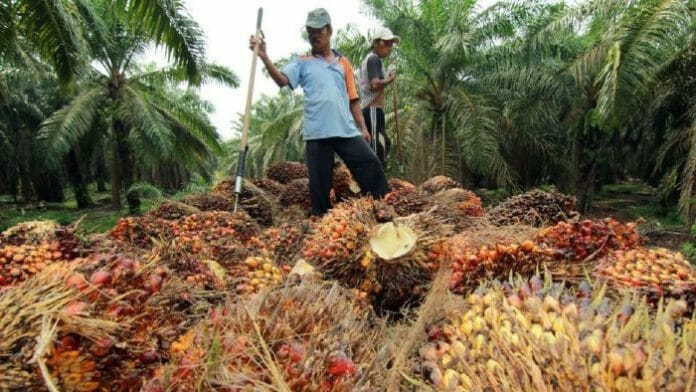Malaysian Palm Oil Board (MPOB) welcomes the proposal to revert the windfall profit levy rate from 3% to 1.5% for Sabah and Sarawak.
The board, which is responsible for promoting and developing policies for Malaysia’s palm oil industry, also expects a drop in the threshold price from RM3,000 to RM3,500 in peninsular Malaysia and from RM3,500 to RM4,000 in Sabah and Sarawak.
MPOB director general Datuk Dr Ahmad Parveez Ghulam Kadir told Business Today exclusively that the reduction will provide additional income to the plantation companies.
“It can help companies to increase the level of mechanisation in order to overcome the issues of labour shortage in the sector,” he said.
Maybank Investment Bank Research (Maybank IB) Asean Macro X in its Budget 2024 note released last week said that it is awaiting what the budget has to say on the plantation sector’s windfall profit levy, which is currently under review, pending a decision next year.
Currently, the levy is charged at a rate of 3% on crude palm oil (CPO) prices above MYR3,000 per tonne in Peninsular Malaysia and above MYR3,500 per tonne in Sabah and Sarawak.
Pakatan Harapan’s 2023 Shadow Budget mentioned reverting the levy on Sabah and Sarawak to 1.5% as well as raising the CPO price thresholds for the imposition of the levy to above RM3,500 per tonne for Peninsular Malaysia and above RM4,000 per tonne for Sabah and Sarawak.
The government, he said, is currently conducting a study on the tax burden borne by the oil palm plantation sector which will assist the government in making decisions pertaining to taxation in the sector.
Ahmad Parveez said that MPOB hopes that the government will help the oil palm industry in dealing with the problem of labour shortage and high dependence on foreign workers.
“For that, an incentive scheme to purchase machines or machinery to be used in oil palm plantations needs to be established as has been implemented before.
“Through this incentive scheme, the rate of mechanisation can be increased at a faster rate and further reduce the dependence on manual labour.
He said the government should provide incentives to plantation companies that employ local workers to encourage plantation companies to encourage employment of Malaysians, adding an entrepreneurship assistance scheme is also proposed to be given to local youths especially those who have attended courses at the Institute of Malaysian Plantation and Commodity (IMPAC).
“The board also hopes that the government will provide incentives for replanting to smallholders and plantation companies as well to reduce the number of ageing oil palm.”
Asked on what he expects to happen in the tabling of the budget on Friday (Oct 13), he said: “I expect that the government will pay attention to preserving the palm oil sector as it is one of the main contributors of GDP.
“Again, I hope there will be incentives on mechanisation and replanting,” he added.









